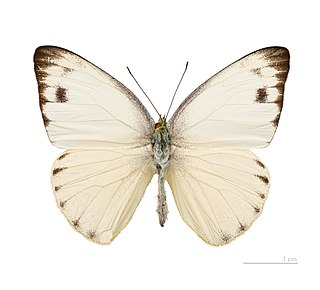Abraxas is a word of mystic meaning in the system of the Gnostic Basilides, being there applied to the "Great Archon", the princeps of the 365 spheres. The word is found in Gnostic texts such as the Holy Book of the Great Invisible Spirit, and also appears in the Greek Magical Papyri. It was engraved on certain antique gemstones, called on that account Abraxas stones, which were used as amulets or charms. As the initial spelling on stones was "Abrasax" (Αβρασαξ), the spelling of "Abraxas" seen today probably originates in the confusion made between the Greek letters sigma (Σ) and xi (Ξ) in the Latin transliteration.

Abraxas is the second studio album by Latin rock band Santana. It was released on September 23, 1970 by Columbia Records and became the band's first album to reach number one in the United States.

Abraxas, Guardian of the Universe is a 1991 science fiction film written and directed by Damian Lee and starring Jesse Ventura and Sven-Ole Thorsen, with a cameo by James Belushi.

Santana's Greatest Hits is a 1974 compilation album by Santana. It offers highlights from the group's first three albums. It is the band's best-selling compilation album, selling over 7 million copies in the U.S. alone while selling more than 8 million records worldwide.

Heliothis is a genus of moths in the family Noctuidae. It was first described by Ferdinand Ochsenheimer in 1816. Some of the species have larvae which are agricultural pests on crop species such as tobacco, cotton, soybean and pigeon pea. Some species originally in this genus have been moved to other genera, see Chloridea and Helicoverpa.

Appias, commonly called puffins or albatrosses, is a genus of butterflies in the subfamily Pierinae (whites) found in Africa and southern Asia.

Abraxas grossulariata is a moth of the family Geometridae, native to the Palearctic realm and North America. Its distinctive speckled colouration has given it a common name of magpie moth. The caterpillar is similarly coloured to the adult, and may be found feeding on the leaves of shrubs such as gooseberry and blackcurrant. The species was first described by Carl Linnaeus in his 1758 10th edition of Systema Naturae.

Heliothis punctifera or the lesser budworm, is an Australian moth of the family Noctuidae; one of the most migratory families of insects. It is considered a pest species to agricultural crops, however, due to its inland habitat, is found to be less damaging to agricultural areas than other species of the genus.

Baniana is a genus of moths of the family Erebidae. The genus was previously classified in the subfamily Calpinae of the family Noctuidae.

Condica is a genus of moths of the family Noctuidae.

Abraxas, the magpie moths, is a genus of moths in the family Geometridae. It was first described by William Elford Leach in 1815.

Tron: Evolution is a third-person action-adventure video game, the tie-in for the film Tron: Legacy. It was developed by Propaganda Games and published by Disney Interactive. It was announced at the Spike Video Game Awards and was released for Microsoft's Windows and Xbox 360 platforms, and Sony's PlayStation 3 and PlayStation Portable platforms. It was released on November 25, 2010 in Australia, November 26, 2010 in Europe, and December 7, 2010 in North America and Asia. It uses engines from Epic Game's Unreal, and BioWare's Aurora.

Condica punctifera is a moth of the family Noctuidae first described by Francis Walker in 1857. It is found in southern Florida and on the Bahamas, Cuba, Jamaica, Hispaniola and Puerto Rico.
Arctiocossus is a genus of moths in the family Cossidae.

Atomosia is a genus of robber flies in the family Asilidae. There are at least 60 described species in Atomosia.












